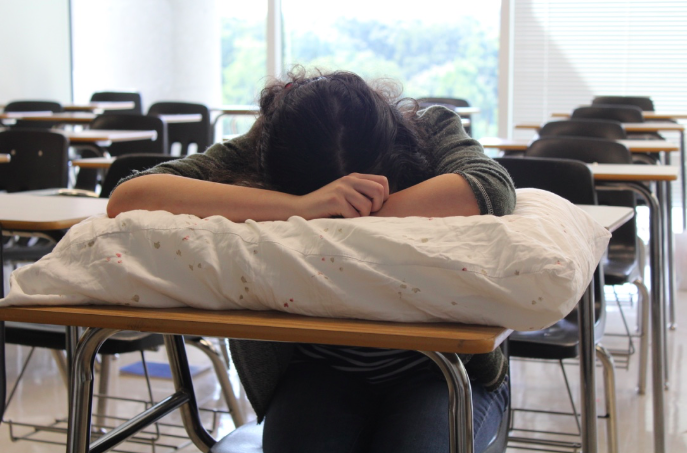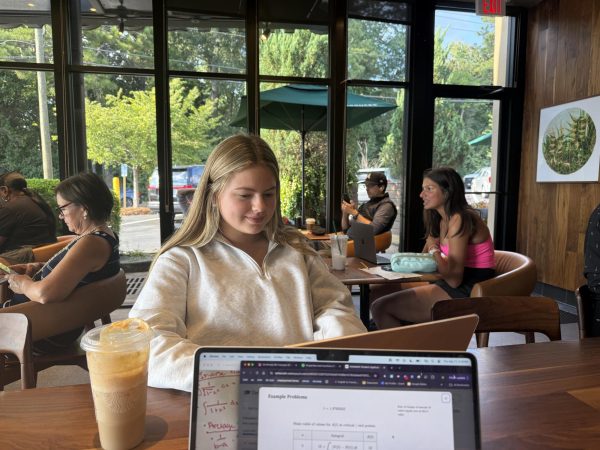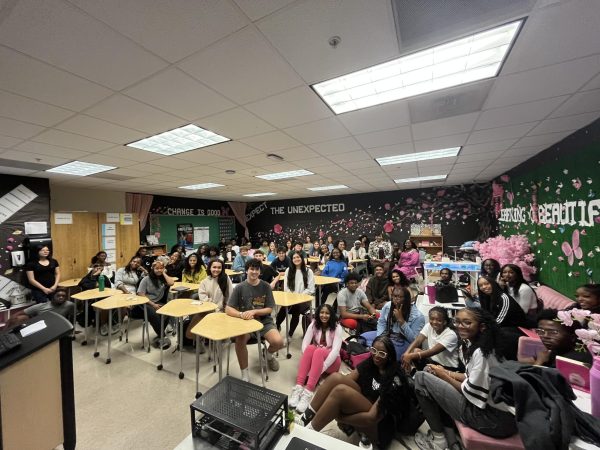Sleep Is For the Weak
Wire staffer Nicole Spektor experiences the school struggles of little sleep.
We’ve all had those nights. It’s two in the morning, you’re relaxing in your bed watching some random Youtube video when: Wham! You just remember that you have a major essay due in English. Oh well, you weren’t planning on sleeping tonight anyway. Studies show – and by studies I mean that 9-5-2-1-0 rule we’ve all seen on posters in our middle school health class – that the average high-schooler needs at least from 8 to 9 hours of sleep per night.
Of course, we all know that that is not the case with most students at North Atlanta. Waking up and rolling out of bed groggily is how most of us start our day. However, that would make perfect sense if you very responsibly completed that entire project that was given to you two weeks ago right after your dad told you lights out. Or crammed for a major test at one in the morning. Or binge-watched the entire first eleven seasons of “Doctor Who.” Who needs sleep, anyway?
“Based on current data, we think that most teens need on the order of nine-plus hours nightly to have optimal sleep,” said Mary Carskadon, a biobehavioral scientist, as quoted on the National Sleep Foundation official website. “The NSF poll data indicate that most teens fall short of this goal, many by a considerable amount.”
It’s no surprise that the amount of homework we get in school can cram our schedule easily, and it’s practically an expectation for anyone who takes AP or IB to spend a few hours too many finishing up a mountain of work every night.
We’ve all been told that sleep is important to our health, but do we really realize just how much it can affect us during waking hours? Depression, severe mood swings, short attention span, dizziness, lower body temperature, muscle tiredness and nausea can hugely impact how well we do in school and with our general social lives. Yet despite this, students usually sleep from four to seven hours on average.
Some would say it’s the school’s fault for giving too much work. Others argue that students are to blame because they procrastinate and do work at the last minute. “I think it’s both,” said freshman Ethan Staats. “Sometimes students procrastinate but sometimes the teachers give too much work at the same time.”
It seems like he isn’t the only one who thinks so as well. “It’s time management for students and too much work from the school,” said junior Andre Dedoyca.
Whether it’s because your teacher gave you five textbooks of work due next class or because you decided to take that two-hour nap before getting started, you can be sure that with all this work ahead of us, the curtailed sleep cycle for all of us will continue.












